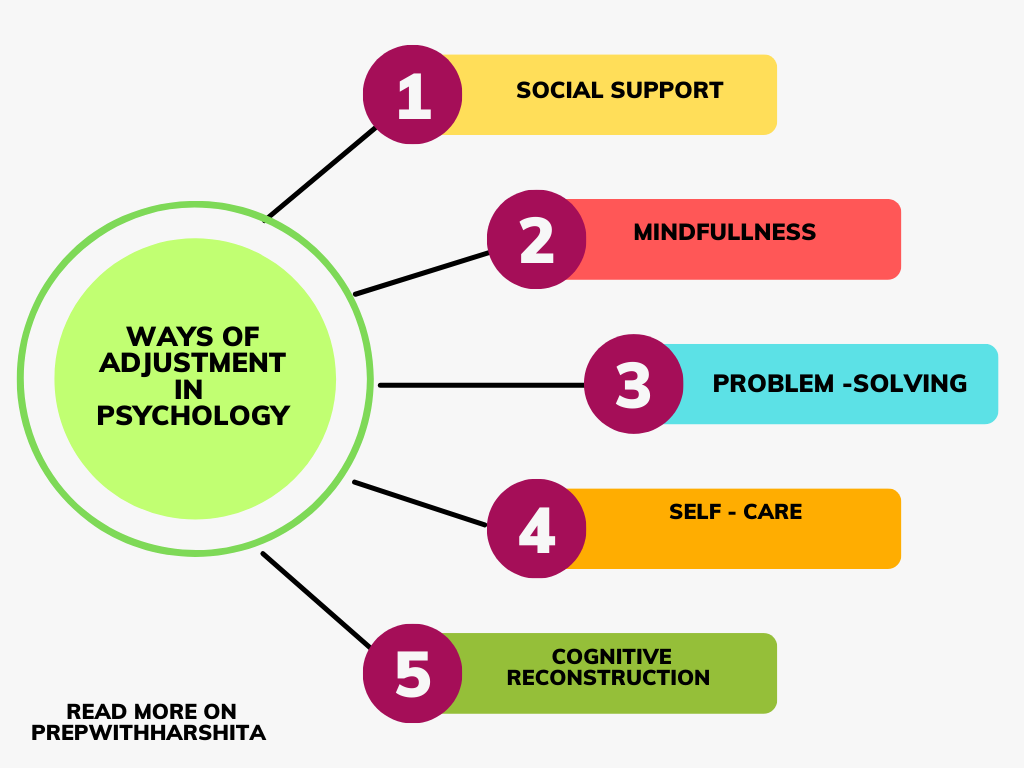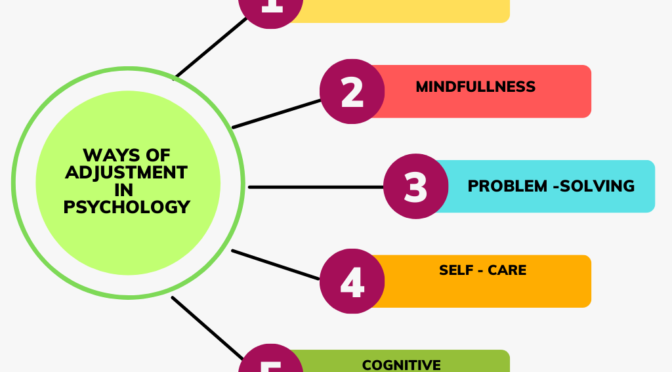Adjustment in psychology refers to an individual’s ability to adapt and cope with the demands and challenges of their environment. It is a process of attaining psychological balance and stability by changing one’s thoughts, feelings, and behaviors to meet the demands of the situation.
Adjustment is a dynamic process that occurs throughout an individual’s life as they encounter new challenges and experiences. It is influenced by a variety of factors, including an individual’s personality traits, upbringing, social support, cultural background, and life experiences.
Individuals who are well-adjusted have the ability to handle stress and adversity, maintain positive relationships, and achieve their goals. On the other hand, those who struggle with adjustment may experience difficulties with their emotional and social functioning. It can lead to mental health problems such as anxiety, depression, and substance abuse.
Adjustment is often studied within the field of clinical psychology, where it is used to assess and treat individuals who are experiencing emotional or behavioral problems. Therapists may use techniques such as cognitive-behavioral therapy or interpersonal therapy to help individuals improve their ability to adjust to their environment and cope with life’s challenges.
Also Read: Assessment of Intelligence
Ways to adjust in psychology:
- Cognitive restructuring: This involves changing one’s negative or maladaptive thought patterns that contribute to emotional distress. Cognitive restructuring techniques involve identifying and challenging negative thoughts and replacing them with more positive and adaptive ones.
- Behavior modification: This involves changing one’s behavior to achieve a desired outcome. This can include setting goals, practicing new behaviors, and reinforcing positive behaviors.
- Social support: Having a strong social support system can help individuals cope with stress and adversity. This can include family, friends, and other supportive individuals who can provide emotional support and practical assistance.
- Mindfulness: This involves practicing techniques such as meditation and deep breathing to increase self-awareness and reduce stress and anxiety.
- Problem-solving: This involves identifying and solving problems in a systematic and effective manner. This can include breaking down a problem into smaller parts. Brainstorming solutions, and evaluating the pros and cons of each option.
- Self-care: This involves taking care of oneself physically, emotionally, and mentally. This can include engaging in regular exercise, eating a healthy diet, and getting enough sleep. Also, engaging in hobbies and activities that bring joy and relaxation.
These are just a few examples of ways individuals can adjust and adapt to their environment to achieve psychological balance and stability. It’s important to note that the most effective strategies will vary from person to person and may require the guidance of a mental health professional.
Also Visit: Prep with Harshita



2 thoughts on “Adjustment in Psychology”